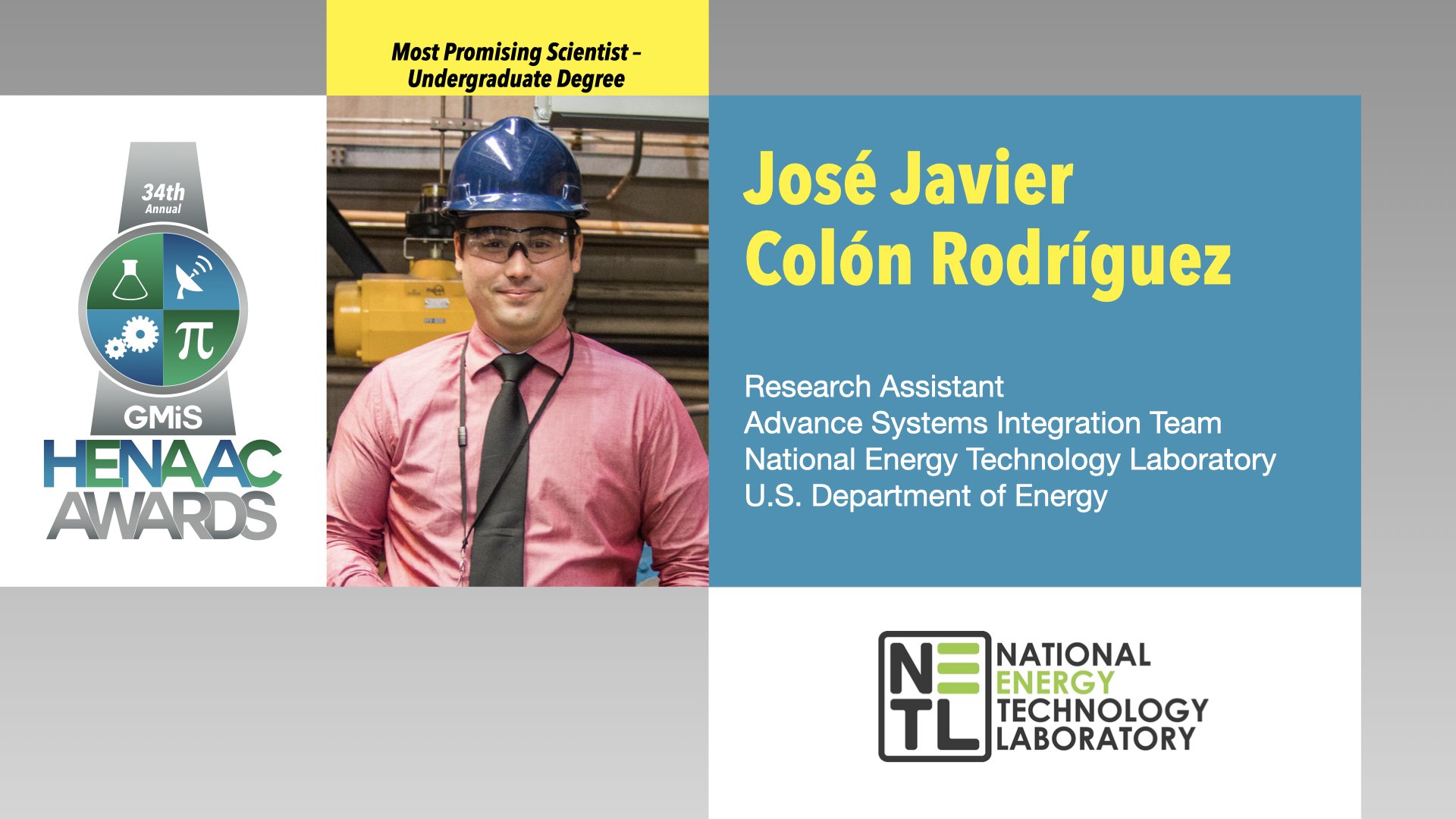2022 HENAAC Awards
Education: Ph.D. (candidate), Materials Science and Engineers, West Virginia University; Master’s, Mechanical Engineering, West Virginia University; Bachelor, Mechanical Engineering, Universidad Ana G. Méndez (Puerto Rico).
Young José Colón-Rodriguez took an interest in engineering at a very young age. While still in high school in his native Puerto Rico, he entered a local science fair and submitted his research project on invasive aquatic plants in tropical environments. He won first place and received an invitation to an international science and engineering fair held in Arizona, where he presented to international experts and competed with peers from around the world.
It took Hurricane Maria to ignite Mr. Colón-Rodriguez’s passion for energy. The storm devastated the island in a matter of hours, but the pain endured for years as authorities struggled to bring the power grid back online, affecting millions of people. He dedicated himself then to mastering the technologies of electric power generation and transmission.
He committed to mechanical engineering as his major and earned a position as a summer research intern at the National Energy Technology Laboratory (NETL), a U.S. Department of Energy facility in Morgantown, West Virginia. He continued to work with NETL on research projects as he completed his undergraduate degree, and soon he was mentoring other students, including graduate students, as a research advisor through the Oak Ridge Institute for Science and Education program.
Mr. Colón-Rodriguez has made significant contributions to NETL’s funding awards from the Advanced Research Projects Agency-Energy (ARPA-E). His work modeling a solid oxide fuel cell and an internal combustion engine hybrid power system were particularly critical. As part of an ARPA-E Phase II award, Mr. Colón-Rodriguez has been characterizing long-term degradation of materials as a function of operating parameters, with initial results showing statistical significance far in excess of any data found in the literature. This could lead to extending the life of solid oxide fuel cells in a hybrid system by as much as ten times.
Mr. Colón-Rodriguez is concurrently pursuing his Ph.D. at West Virginia University, pursuing research that supports the projects within the ARPA-E program.

